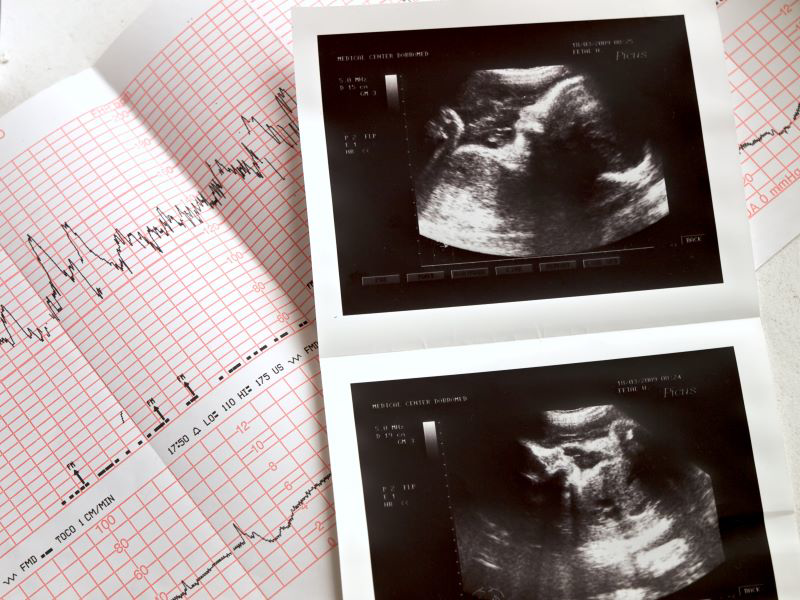A Win Against Deepfakes
Sign up for a six month free
trial of The Stand Magazine!
Elliston Berry and Francesca Mani have something horrifically unfortunate in common: they were both victims of deepfakes.
With each day that passes, it seems as though these graphic images of online digital abuse are running rampant. Thorn, a non-profit organization that exists to combat child sexual exploitation and trafficking, defines deepfakes as “synthetic media creations that depict real people in sexually suggestive or explicit situations or activities.”
And in today’s technologically advanced world, deepfakes are quickly spreading abuse and leaving victims in their path, including Berry and Mani.
Berry, at age 14, was caught off guard when, one morning, she opened her phone to see digitally altered nude images of herself and two friends. The original photo, which had been taken and posted on social media, was innocent. But thanks to AI, that social media-worthy photo had been altered to make the teen girls appear nude. Within 24 hours, Berry sat and watched as other female classmates faced the same fate, with their altered photos spreading among the Aledo High School student body.
Mani also faced a similar situation when she was 14. At that time, male students at Westfield High School, where she attended, shared nude images of her and other girls who went to the school. Just like Berry, the photos had been artificially altered using an AI app.
When it comes to deepfakes specifically, Thorn’s research reported, “1 in 17 (6%) respondents reported they had been the target of someone using technology to create deepfake nudes of them, including 1 in 17 teens.”
CBS News also stated in 2024 that they “found nearly 30 similar incidents in schools in the U.S. over the last 20 months and plenty more around the world.”
Berry and Mani may just be two American victims of many, but they aren’t letting these images dictate their lives or future. Instead, they both draw attention to this crime separately, with the hope of protecting future victims from suffering the same way that they did.
In doing so, they just so happened to catch the eye of a very special lady, First Lady Melania Trump.
Throughout both of her husband’s terms, Melania has passionately worked and promoted her “Be Best” Campaign. Her initiative focuses on the well-being of children and addresses cyberbullying as well as the opioid crisis.
Earlier this year, Melania sat alongside Berry, Mani, and other victims of online sexual exploitation at a roundtable discussion on how to handle these issues best as they discussed the “Take It Down Act.”
Months later, on May 19, 2025, President Donald Trump, alongside his wife, signed the Take It Down Act into law, with Berry and Mani in attendance.
The bill, which is a significant win for child online safety, explained that the law will punish individuals who are abusing others (of any age) through the means of deepfakes or online sexual exploitation. Fox News reported on the penalties for breaking the law, which include:
- When sharing non-consensual intimate images (NCII) involving minors, violators will face up to three years in prison.
- Those who share NCII images of adults will face up to two years in prison.
- For perpetrators who “threat offenses” involving minors, the penalty will be up to two and a half years in prison. Meanwhile, one and a half years in prison for those who threaten adults in the same way.
The bill will also require popular social media sites to remove exploitative content within 48 hours after the victim makes the entity aware of the images.
To make matters even sweeter, this bill passed with flying colors.
Introduced by senators Ted Cruz (R-TX) and Amy Klobuchar (D-MN), at the bill’s signing, President Trump expressed that 99 out of the 100 senators voted in favor of the act.
Another issue that this bill hopes to help address is the tragic cases of sextortion that seem to be climbing in the United States. Also in attendance at the bill’s signing was South Carolina state representative Brandon Guffey, the father of the late 17-year-old Gavin Guffey, who committed suicide after falling victim to a sextortion case.
In 2023, the National Center for Missing and Exploited Children’s (NCMEC) CyberTipline received “more than 186,800 reports of online enticement, the category that includes sextortion.”
Likewise, NCMEC reported that between 2021 and 2023, “the number of online enticement reports increased by more than 300%.”
At the signing of the bill, Melania made eloquent statements about her opinions on the legislation. She said:
“This legislation is a powerful step forward in our efforts to ensure that every American, especially young people, can feel better protected from their image or identity being abused through non-consensual, or intimate imagery of NCII.”
She didn’t stop there.
“Artificial intelligence and social media are a digital candy for the next generation,” she continued. “Sweet, addictive, and engineered to have an impact on the cognitive development of our children. But unlike sugar, these new technologies can be weaponized to shape beliefs, and sadly, affect emotions and even be deadly.”
How right she is!
I have a sneaky suspicion that this isn’t the last we will hear from her on the topic. But with news like this, I can’t wait to see how this administration continues to protect our youth from the deadly poison of all forms of sexual exploitation.

Sign up for a free six-month trial of
The Stand Magazine!
Sign up for free to receive notable blogs delivered to your email weekly.



















